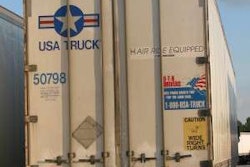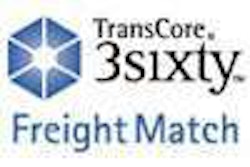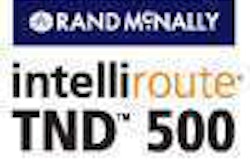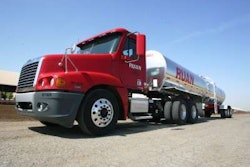 The American Trucking Associations on Tuesday, Jan. 5, filed its final response brief seeking summary judgment in certain aspects of its challenge to the Port of Los Angeles concession plan mechanism. Among other things, ATA is asking the U.S. District Court to find in its favor the legal issue of whether the port’s concession agreement has a sufficient impact on motor carrier rates, routes and services to fall within the federal pre-emption provision.
The American Trucking Associations on Tuesday, Jan. 5, filed its final response brief seeking summary judgment in certain aspects of its challenge to the Port of Los Angeles concession plan mechanism. Among other things, ATA is asking the U.S. District Court to find in its favor the legal issue of whether the port’s concession agreement has a sufficient impact on motor carrier rates, routes and services to fall within the federal pre-emption provision.
The court is scheduled to hear the ATA motion and the port’s cross motion for summary judgment on Monday, Jan. 11, with a decision expected shortly thereafter. Legal issues requiring further factual development will be the subject of a trial beginning in mid-March. Summary judgment is a procedural device that allows a court to decide some or all of the legal issues involved in a case prior to trial if there is no legitimate dispute as to the material facts surrounding those issues.
After the Clean Truck Program initiative was launched by the Ports of Los Angeles and Long Beach in late 2008, ATA filed a lawsuit challenging the program’s concession agreement, which established clean air, safety and maintenance requirements on trucking companies that operated at the ports. On April 27, 2009, Judge Christina Snyder of the U.S. District Court for the Central District of California made a tentative ruling to enjoin several elements of the concession plans at both ports.
Following the March 20 guidance of the U.S. Court of Appeals for the Ninth Circuit, Snyder ordered an injunction against seven concession requirements that ATA had argued would regulate interstate commerce at the ports:
Enjoining these concessions came after a three-judge panel of the U.S. Court of Appeals for the Ninth District unanimously ruled in favor of ATA on March 20 and remanded the case to the U.S. District Court, indicating that the judge should grant ATA an injunction against all or part of the concession plans that were tied to the Clean Truck Program. ATA had not challenged the ports’ clean goals of the program.
The Long Beach Board of Harbor Commissioners and ATA approved a settlement on Oct. 19, 2009, that would replace the concession agreement at the Port of Long Beach with a registration agreement in which trucking companies would need to register their trucks in the port’s Drayage Truck Registry and equip them with radio frequency identification (RFID) tags. Similarly, motor carriers would acknowledge responsibility for ensuring that all drivers dispatched to the port possess a valid commercial driver’s license and a Transportation Worker Identification Card (TWIC). The registration also authorized the port to gain access to the Intermodal Association of North America’s virtually real-time database to ensure that motor carriers have appropriate insurance coverage.











